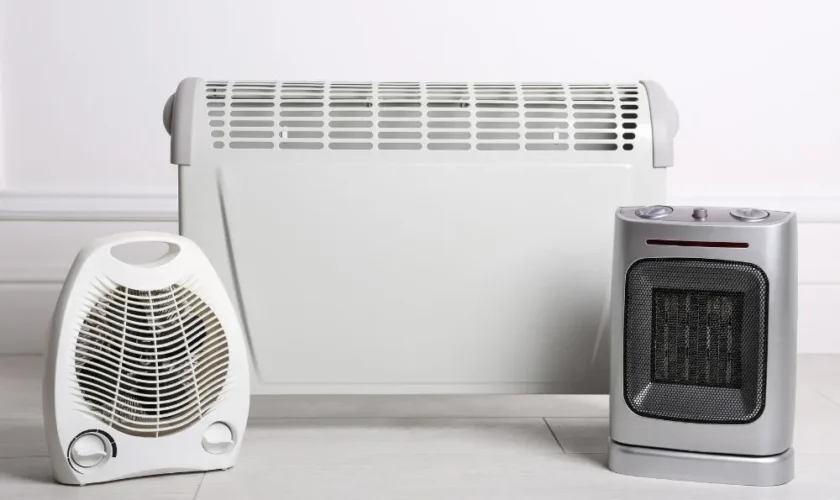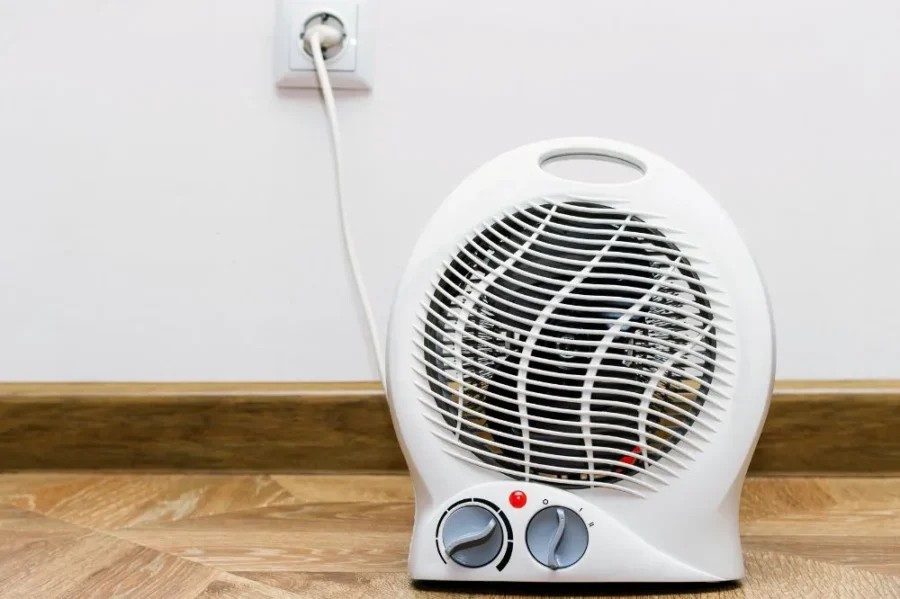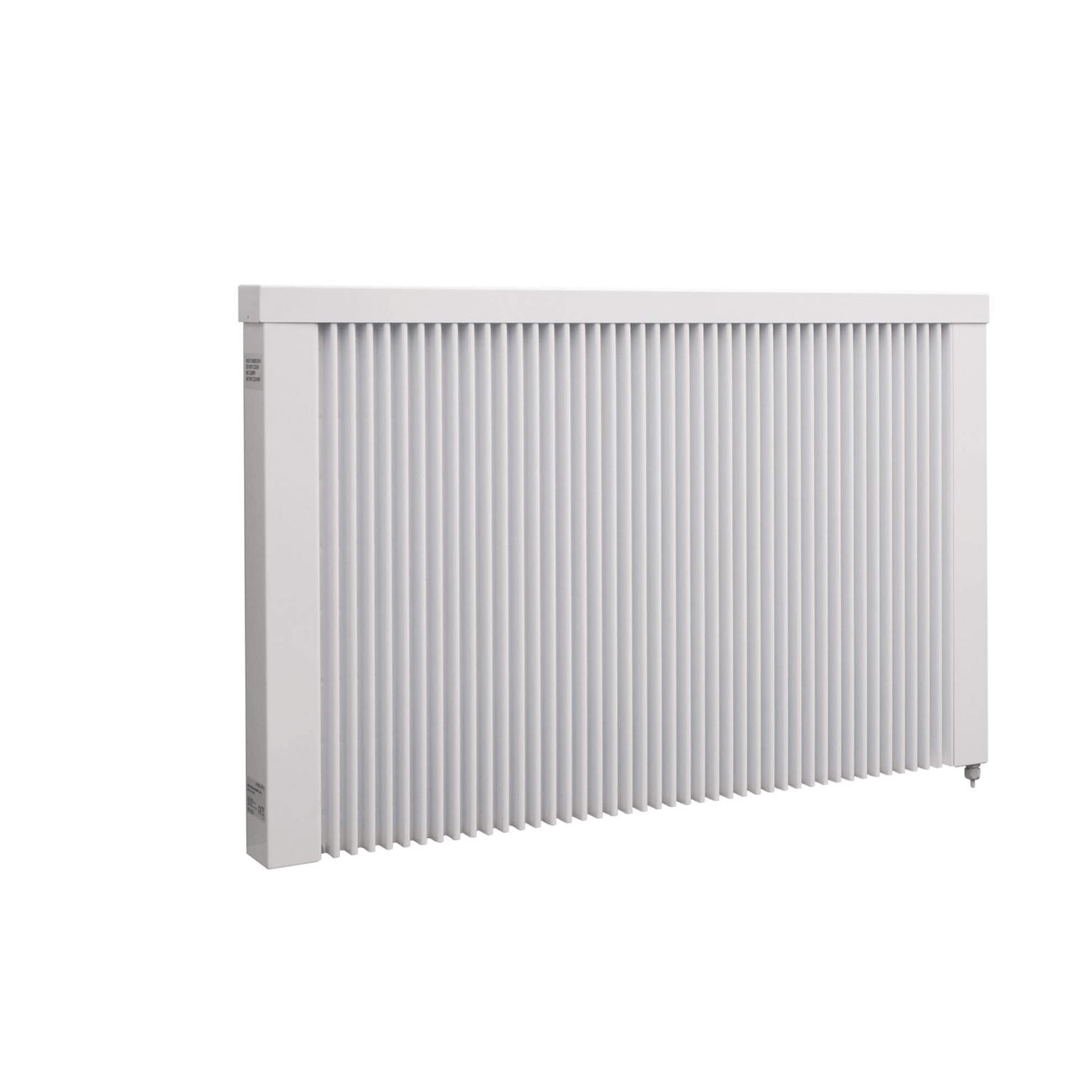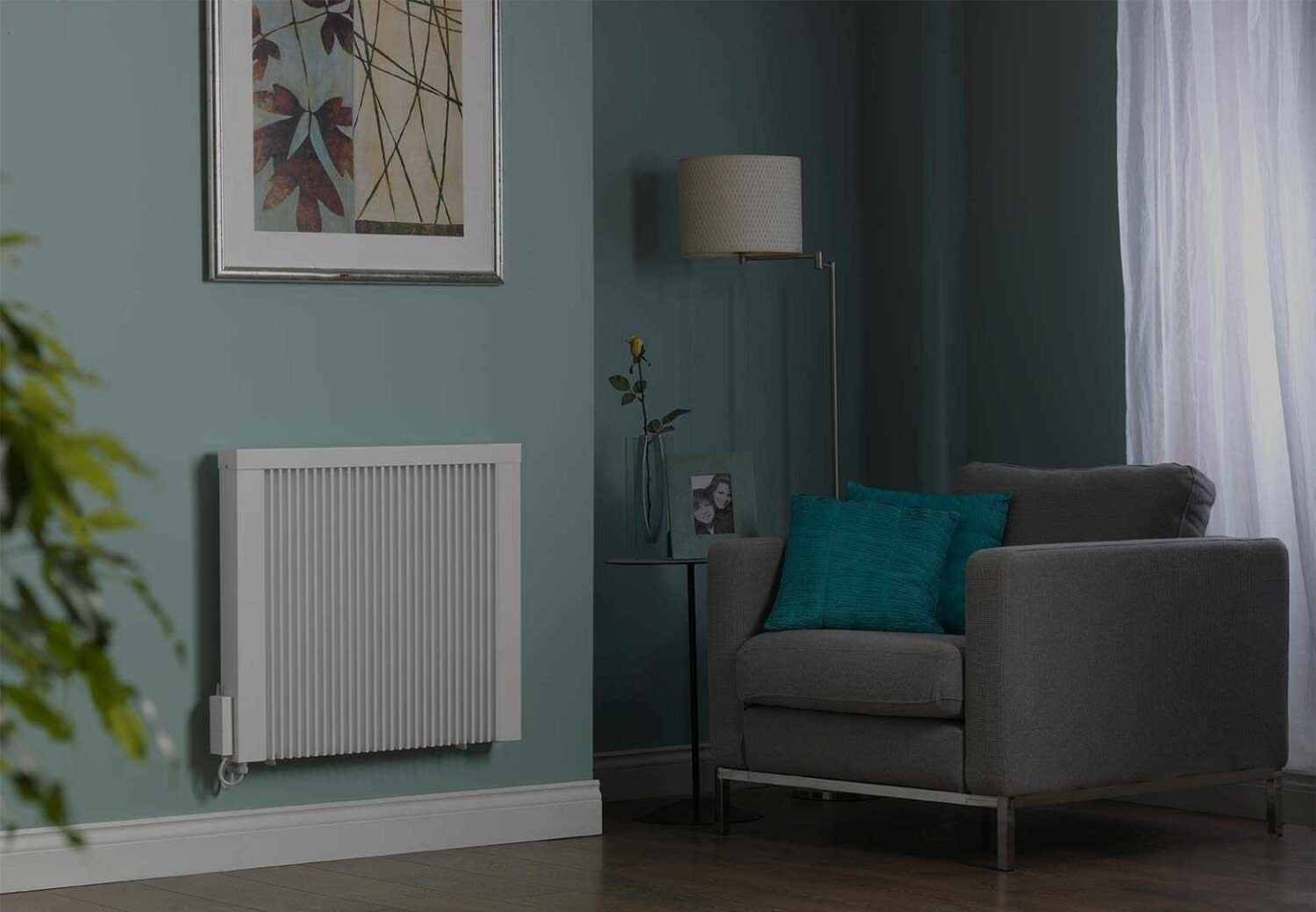Everything You Need To Know About Electric Heaters
By Dynamic Heaters

Electric bills are higher than ever and with the winter months closing in, we start to dread the time when we have to switch on the heating. Heating a home does not come cheap, but there are ways to cut back on bills.
We’ve come up with a handy guide that covers all you need to know about electric heating. If you’re thinking of making a change to your central heating system, this guide should give you the information you need about the electric alternatives to traditional radiators.
Introducing Electric Heaters
Before we go into each type of electric heater on the market, how they work and which is best for you, we should first talk about why electric heaters are an efficient choice for your central heating.
Are electric heaters expensive to run?
Most of the bad rep that electric heaters receive is historical. While some types are less efficient than others, modern electric radiators are designed to generate as much heat with as little electricity as possible. Low-wattage heaters can produce ample warmth to make any space comfortable and can be switched on as and when they are needed.
How much an electric heater costs to run depends on different factors. The wattage of the model, the electric tariff of the property, how well insulated the property and how long the product is switched on for.
The main benefit of electric heaters, however, is that it is easy to cut back on the usage and save money. With central heating, the boiler must use the same amount of energy each time it is switched on to warm the amount of water in the system. With individual heaters, only the heaters in use are powered so less energy is spent warming the rooms in use, rather than the whole house.
How Do Electric Heaters Work?
Traditional radiators use hot water that is either heated using an electric or gas boiler. Electric heaters draw their heat from the power supply, converting the watts into thermal units.
As electric heaters don’t need hot water, they don’t need to be plumbed to the boiler. They can be put pretty much anywhere in the room – ideally under a window or in a central location on an internal wall. All they need is access to the main electricity supply and so it’s best to have an electrician fit your heaters if you need to have a plug socket put in if there isn’t one convenient enough to the mounting location.
How do I change from gas heating to electric?
Changing your central heating system from a gas boiler opens up the option to convert to a more efficient, environmentally friendly and safer heating system. While there are arguments to say that gas heating is cheaper, it isn’t as efficient. Gas boilers produce more pollution, generating excess moisture, as well as carbon dioxide and carbon monoxide, the latter which can be dangerous if not monitored. Electric heating is a cleaner and safer alternative to the more traditional form of central heating – and if you choose to move your electricity to a renewable option – a greener option. This is the reason why electric heating is becoming the favoured method for heating UK homes moving forward.
If you would like to know more about replacing your central heating system with electric radiators, don’t hesitate to get in touch with a member of our team. We offer a replacement service on top of our electric radiators to safely remove old boilers and radiators as well as fitting the new electric heaters.
What types of electric heaters are there?
Electric heaters come in many different types. Picking the right one to fit your needs can be a challenge when faced with such a variety. Each comes with its pros and cons, however we are always on hand to help you choose what will function best in the rooms that you need heating.
Electric fan heater

Often the cheapest option for a small heater, electric fan heaters use a heating element, made either from metal or ceramic in combination with a powered fan.
| Pros | Cons |
|---|---|
|
|
Oil-filled heaters

A common choice of portable heater, oil-filled heaters are an okay choice for heating a small room. The oil contained in the heater is used as a reservoir which retains the heat and radiates it evenly. The heater can be wheeled out as and when it’s needed.
| Pros | Cons |
|---|---|
|
|
Panel heaters / Convection heaters

An alternative convention heater option, panel heaters use internal heating elements to warm the air inside the heater body and push this around the room. Panel heaters can provide a quick blast of warm air but are notoriously very high on running costs.
| Pros | Cons |
|---|---|
|
|
Storage heaters

Set up to make use of the cheaper tariff of electricity during the night time, storage heaters work through warming up heat-retaining bricks which then release their heat during the day time.
| Pros | Cons |
|---|---|
|
|
Our German Electric Radiators

At Dynamic Heaters, our radiators are designed to make use of all the benefits of storage heaters while avoiding the disadvantages. A modern twist on an older concept of heating. Using a 50/50 split of natural radiant and natural convection heat, the radiators provide a balanced warmth. They are also fitted with heat retention tablets that retain the heat (a bit like a storage heater).
| Pros | Cons |
|---|---|
|
|
Why Replace Storage Heaters?
If you have just moved into a new property and there are old storage heaters still in use, you may want to consider updating them. There are a few reasons why you may not be getting the benefits you expect.
Only cheaper to run if you have a good economy 7 rate
Storage heaters are a good way to heat a home cheaply but only if you have access to a cheaper electricity tariff. This is coming increasingly harder as energy providers start to turn away from providing Economy 7 tariffs. Due to the slight drop in night rate, you will also receive a much higher than usual on peak rate. This means that any electricity used in the day will cost you more than normal.
They only heat during the day
While the principle of storage heaters makes them efficient, older models are programmed to store heat at night and release the heat in the day. If you wish you use them to emit the heat for when you go to bed, you don’t have that option. Moving to electric heaters or a more modern type of storage heater will permit you more flexibility.
Their heat runs out
Storage heaters also only have a limited amount of heat stored each day. Once that heat has been used up, you can’t use the heater until the following morning when it’s stored enough heat. Our German Electric Radiators split between direct heat and stored heat so they are retaining energy while also providing you with warmth. You receive all the benefits of a storage heater without any of the disadvantages.
Heavy and tricky to replace
It’s best to have a qualified electrician to dispose of your old heaters as they require totally dismantling to remove. If you wish to have your heaters updated with our Electric Radiators, we can remove your old heaters and fit the replacements for you.
Why Choose Our German Electric Radiators
Unlike storage heaters, our Electric Radiators are not limited to only storing heat during specific hours. They work as and when you need them. There is no energy wasted on powering a fan to encourage air flow, instead they use a balance of natural convention and natural radiant heat to evenly heat the space, leaving no dry air patches and cold corners.
Fit for purpose
We have a diverse range of different sizes, colours and shapes. If wall space is an issue, our vertical electric radiators can work perfectly and blend well with your choice of decor.
Got a perfect spot for it to go under the window? No problem. Our electric radiators can be mounted to get the full benefit of their heating.
Take full control of your heating wherever you are. Our range includes Wifi Electric Radiators. Once paired up with your mobile device, our smart heaters come into their own. No more worrying about electricity going to waste when you’re away from home. With our heating app, you can even use GPS to give your heating system a head’s up when you’re on your way home so you arrive to a warm welcome.
The Smart, Efficient Way To Heat A Home
Our German Electric Radiators are designed with efficiency in mind. With a 50/50 split between heating via a direct heating element and Heat Retention Stones, they require only 12-15 minutes of energy to radiate 45 minutes of stored heat. Their design makes use of a greater surface area to warm a larger volume of air than a standard flat panel heater.
Take control of your heating with our App
Using our smart radiators, you can easily regulate how much you use your radiators and make sure that no electricity is gone to waste, heating up an empty room. We have a fantastic app that has a number of features to fully control your heating.
One feature makes use of a geolocator that will boot up your heaters when you are within reach of your home, giving them plenty of time to warm up so you aren’t arriving to a chilly house. It can also turn your heaters down once you leave to help save on energy usage. You can programme multiple radiators, giving you full control of your central heating no matter where you are. There’s no more worrying while half-way down the road if you’ve left the heating on. Just check your phone.
Setting up thermostats and heating schedules
If you’re planning on completely changing over your heating system to our electric radiators, you can have them either individually programmed to fit in with your daily schedule, or having them all set up to a thermostat. The major benefit of changing over to electric heaters is that you can save electricity by heating only the rooms that are in use. They are perfectly safe and can be left on for as long as you need, especially during a cosy night’s sleep.
Making the right choice
Before you decide, we recommend you first work out how many BTU’s (British Thermal Units) your room will need for your heater to efficiently heat the space. Here is a handy calculator that will do just that.
You can get a general idea of what wattage you’re looking for by using the BTU’s, however choosing your heater on their wattage alone could have you falling into the pitfall of selecting an inefficient way to heat up your room. More watts doesn’t always equal more heat. A lot of energy can be wasted if you don’t choose the most efficient heater for the job.
To help you make the best choice, we’ve come up with some questions to consider.
What room are you trying to heat?
The type of heater you’re after can depend on which room is the one of choice.
For bedrooms, we would recommend you don’t choose a traditional storage heater that using off-peak electricity. Instead, choose a heater that can be used as and when you need it so you aren’t trying to sleep in a chilly room.
Rooms that see a lot of use – such your kitchen, living room and study – would benefit more from a heater that is cheaper to run during the day. You could use a storage heater, however they have a limited amount of heat per day. The best choice would be a wall-mounted heater as this will heat up quickly and be controllable.
What is the general purpose of your heater?
If you’re after a heater that can be used as and when you need it, something portable would be your best choice. Oil-filled heaters are the most efficient choice for a temporary set up to give your space a boost of heat. However, they aren’t the best option if you need to warm up a large space regularly.
If you need to have your heater as the main source of warmth, one of our German Electric Heaters would be your best choice.
Do you have enough wall sockets?
One thing to consider is if you have a power socket free for your heater. As the ideal location for a heater is under a window or on an internal wall without any furniture covering it, it may be difficult to workout where the radiators will go. You may wish to consider having an electrician installing a socket especially for your heater to save you being limited to where you have your heater placed.
How much wall space do you have?
Not every room has a lot of space free – especially kitchens and bathrooms. A vertical wall-mounted unit is the best way to make use of limited space. And they look easy on the eye!
Do you have an Economy 7 or 10 meter?
Introduced in the 1970’s, economy 7 allows you to make use of a cheaper tariff during the night time (between 12am and 7am). If you have an Economy 7 or 10 meter, you’ll be able to make full use of all the benefits storage heaters have to offer.
However, the big drawback with Economy 7 is that while it is cheaper during the off-peak hours, it is more expensive during the day. Other appliances around the house that use a lot of energy, such as televisions, cookers, kettles, hair-dryers for example, will be a lot more expensive to use. If you wish to convert your heating to electric and you have Economy 7, you’ll need to bear in mind if the pros outweigh the cons.
Not many electricity providers offer Economy 7, so if you do have a standard tariff across the board, you have a lot more flexibility with which heaters are best. Though you may want to avoid traditional storage heaters as they use off-peak electricity.
If you are currently fixed on a strong Economy 7 tariff, our electric radiators can still be used in conjunction with this and make use of both the off-peak and on-peak tariffs. Contact us to find out more about this.
Our tips for using your electric heaters
As with any appliance, they can last a long time guaranteed that they are looked after. We have some general tips to help you get the most out of your electric heater so they truly are the best heating solution for your home.
Keep your heater clear
Electric heaters, just like radiators, use convention to evenly warm a room. Having furniture in front of it will stop the air flow and block the heat. Position your sofas and cabinets away from your heaters, letting the convection currents flow freely.
Make sure the hot air isn’t leaving the room
The worst thing is when you heat a room and all the hot air goes right out the window. You’ll need to keep your room well ventilated, but draughts and poor insulation will just drain your electricity. Improve the insulation of your room and if you don’t have double glazing, now might be the time to change your windows.
Don’t use your heater as a way to dry clothes
It’s not safe to cover your electric heaters with any clothes or blankets. You can end up not only overheating it and causing it to break, but it is a safety hazard. Electric heaters can get very hot and can set light to fabrics if they are covering the heater. Please always keep your heater clear of anything that could potentially catch light.
Programme your heaters to come on when you aren’t home
While it may sound like a waste of money to heat up an empty home, leaving your house freezing while you are away can be a lot more costly in the long run. All you need is a little heat for a few hours a day to keep your water supply from freezing. Burst pipes and consequent water damage are not the sort of problems you want to be faced with when coming home. Keeping your home from freezing doesn’t have to be expensive, just enough to keep the pipes safe. Our Dynamic Evoke electric radiators can be programmed on the ‘frost protection’ setting to keep the chill off.
Interested in changing to electric heaters?
We’ve given you a lot to think about, but we can help you make the best choice for your home with a free survey. We’ll give transparent costs of all our products and chat through what we think will work best for you. On top of our heaters, our service can also include removing old storage heaters, radiators and boilers. Our experienced and qualified electricians take care off all the associated works to make the job hassle free.
Making the move to modern heating
We hope this guide gave you all you needed to know about electric heating. If you do have any questions about electric heating, please don’t hesitate to get in touch. Whether you are after completely replacing your central heating system with electric radiators or simply need to outfit a single room with new heaters, we can help you to find the best heater for the job.


